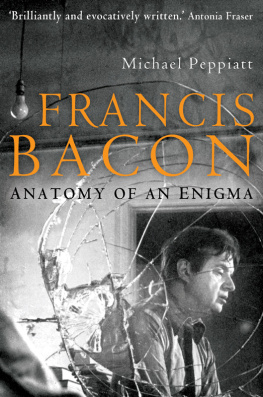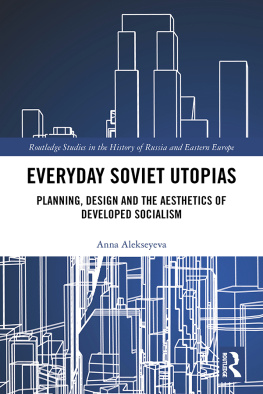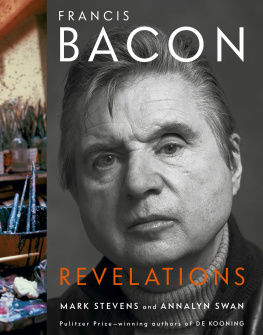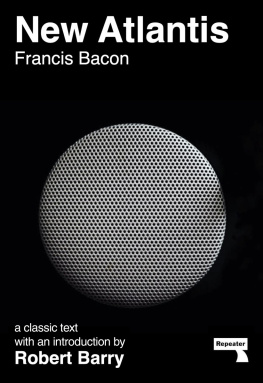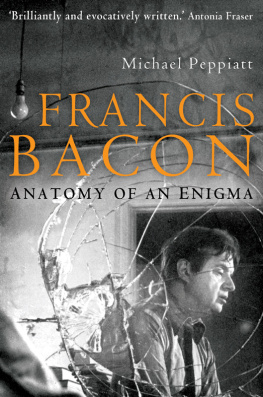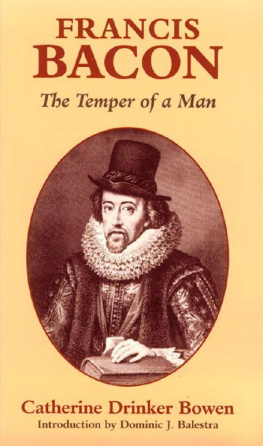Bacon Francis - New Atlantis & The city of the sun: two classic utopias
Here you can read online Bacon Francis - New Atlantis & The city of the sun: two classic utopias full text of the book (entire story) in english for free. Download pdf and epub, get meaning, cover and reviews about this ebook. City: Mineola;New York, year: 2018, publisher: Dover Publications, genre: Romance novel. Description of the work, (preface) as well as reviews are available. Best literature library LitArk.com created for fans of good reading and offers a wide selection of genres:
Romance novel
Science fiction
Adventure
Detective
Science
History
Home and family
Prose
Art
Politics
Computer
Non-fiction
Religion
Business
Children
Humor
Choose a favorite category and find really read worthwhile books. Enjoy immersion in the world of imagination, feel the emotions of the characters or learn something new for yourself, make an fascinating discovery.
- Book:New Atlantis & The city of the sun: two classic utopias
- Author:
- Publisher:Dover Publications
- Genre:
- Year:2018
- City:Mineola;New York
- Rating:5 / 5
- Favourites:Add to favourites
- Your mark:
- 100
- 1
- 2
- 3
- 4
- 5
New Atlantis & The city of the sun: two classic utopias: summary, description and annotation
We offer to read an annotation, description, summary or preface (depends on what the author of the book "New Atlantis & The city of the sun: two classic utopias" wrote himself). If you haven't found the necessary information about the book — write in the comments, we will try to find it.
New Atlantis & The city of the sun: two classic utopias — read online for free the complete book (whole text) full work
Below is the text of the book, divided by pages. System saving the place of the last page read, allows you to conveniently read the book "New Atlantis & The city of the sun: two classic utopias" online for free, without having to search again every time where you left off. Put a bookmark, and you can go to the page where you finished reading at any time.
Font size:
Interval:
Bookmark:
NEW ATLANTIS & THE CITY OF THE SUN
NEW ATLANTIS & THE CITY OF THE SUN
Two Classic Utopias

Francis Bacon & Tomasso Campanella
Foreword by
Gregory Claeys
DOVER PUBLICATIONS, INC.
MINEOLA, NEW YORK
DOVER THRIFT EDITIONS
GENERAL EDITOR: SUSAN L. RATTINER
EDITOR OF THIS VOLUME: LYNNE CANNON
Foreword Copyright 2018 by Dover Publications, Inc.
Bibliographical Note
This Dover Thrift edition, first published in 2018, is an unabridged republication of New Atlantis by Francis Bacon and The City of the Sun by Tomasso Campanella, as originally published in Famous Utopias: Being the Complete Text of Rousseau's Social Contract, More's Utopia, Bacon's New Atlantis, [and] Campanella s City of the Sun by Tudor Publishing Co., New York, in 1901. The Foreword, prepared especially for this edition, was written by Gregory Claeys. The original 1901 Introduction, written by Charles M. Andrews, has been abridged and adapted for this Dover edition.
International Standard Book Number
ISBN-13: 978-0-486-82172-6
ISBN-10: 0-486-82172-2
Manufactured in the United States by LSC Communications
82172201 2018
www.doverpublications.com
CONTENTS
FOREWORD
U topianism is the imagining of much better worlds than our own, the effort to actually create them, and the results which follow, for good or ill, in actually-established utopias and dystopias. The better worlds themselves have generally been defined by greater order, stability, and harmony than the existing world usually manifests; and relationships between individuals, in particular, which are less competitive and more oriented towards friendship or a type of familial, extended kinship. Up to the beginning of the modern period, most utopian concepts were rooted in an ideal past stage of human development. For the ancient Greeks, a long-lost Golden Age provided an image of peace and plenty which might, philosophers like Plato surmised, be recaptured at least in part through careful social re-organization. Christianity envisioned an original paradisical statethe Garden of Eden, as well as a future heaven for the virtuousand in monastic life, in pious pilgrimages to the Holy Land or to tombs of the saints, posited a halfway house where the vanity, greed, and vice of everyday life could be at least momentarily superseded and spiritual sanctity attained. If the ideal life lay only at the beginning and end of sacred history, something approaching a halfway state might be achievable in this life. The European Renaissance signalled a widespread effort to recapture this possibility of earthly governments of greater virtue and piety. One text came to embody this pursuit above all others. The publication of Thomas More's Utopia in 1516, with its purported discovery of an ideal island commonwealth in the South Seas, unveiled a myriad of possibilities for humanity's onward progress. Before More, most of the mainstream travel literature had been dominated by Sir John Mandeville's best-selling Travels (c. 1356), which looked backward to classical authors in its discovery of lands inhabited by monstrous beings with dogs' heads, and the like. Christopher Columbus sought, amongst other things, the long-lost earthly paradise in the Americas. Satire to one side, Thomas More hinted at the possibility that a model commonwealth might have long since been established by Europeans which, rediscovered, could serve as a stimulus for their degenerate successors. Most voyages of discovery had gold as their quest, but virtue, too, in a god-fearing age, glittered in the eyes of its beholders. Humanity's greatness might yet lie before it, and opulence, plenty, and order might yet be reconciled. The foundations of the eighteenth-century theory of progress, which would come to dominate modern social thought, were being established.
The two classic early seventeenth-century utopias presented here address these visions in very different ways. First written in Latin, The City of the Sun of the Dominican monk Tommaso Campanella (15681639) appeared in Frankfurt in 1623. It describes a great city some seven miles in circumference located near the equator in the southern hemisphere. Its inhabitants, the Solarians, exhibit all the virtues we would expect a monk to promote, including sobriety, liberality, chastity, and the love of knowledge. The city is formed of seven concentric rings, whose well-defended walls are decorated with illustrations of its inhabitants' piety and love of nature, which are focussed on their worship of the sun, a great temple being located at the highest point of the city. Also portrayed on the walls are their alphabet, maps of the country, its laws, and the types of plants, fishes and animals, trades, occupations and inventions, even the weather. As for Thomas More, the Greek philosopher Plato is a key influence here, though the people are described as originating in India. The government is by an elected high priest, Hoh, who rules for life. He is assisted by three princes of equal authority, responsible for the domains of power, wisdom, and love, who confer with the general population through frequent councils of leaders. Some magistrates are elected on the basis of their capacity, but the majority are chosen by the four "chiefs." Plato's guardian class were communists, holding their property and wives in common. In More's Utopia property is also common, but its ownership is now extended to the entire population. Campanella, like Plato, includes wives and children, and houses and food, too, though apparently only in the city, not elsewhere in the province (p. 50). Private property is regarded as the chief source of self-love; when it is removed "there remains only love for the state," the result being that the inhabitants "burn with so great a love for their fatherland" as scarcely seems imaginable (pp. 501). Yet, while not dependent on a mutual exchange of benefits, friendships of many types are widely encouraged. Sexual intercourse, however, is strictly regulated by the prince in charge of Love, assisted by many lesser magistrates. Women who use makeup face the death penalty, and pride is generally held "the most execrable vice" (p. 61). Magistrates ensure the birth only of the most fit, with the time of conception being determined by astrologers. Children are reared in common, and are regarded as "bred for the preservation of the species, and not for individual pleasure" (p. 60). The workday is restricted to four hours, and diet and exercise are regulated to promote the well-being of the population, who are so healthy they usually live to the age of a hundred. There is some division of labour according to sex, the women doing all the clothes-making, the men all woodwork and arms manufacture. Social equalitythe characteristic utopian themeis upheld through a system of universal free education which includes the participation of all in agriculture. Men and women dress similarly in white, and all go barefoot. At meals the young wait on their elders, and also, with some unwillingness, on each other. Here magistrates get larger portions, though they distribute some of this to the more studious boys at their table. There are no servants or slaves (as there are in More's text), and everyone learns many trades, then practises the one they are best at. The government is theocratic, and Campanella hints that Spain is destined to impose God's plan on the world through just such a monarchy. There is a hint here, too, of the promise of scientific and technological discoveries, like ships which can travel without wind or sails. There is only one book, however, called "Wisdom," which contains all the knowledge of the nation. War with the four "impious" neighbouring kingdoms on the island is unfortunately frequent, though all, fortuitously, are invariably defeated.
Next pageFont size:
Interval:
Bookmark:
Similar books «New Atlantis & The city of the sun: two classic utopias»
Look at similar books to New Atlantis & The city of the sun: two classic utopias. We have selected literature similar in name and meaning in the hope of providing readers with more options to find new, interesting, not yet read works.
Discussion, reviews of the book New Atlantis & The city of the sun: two classic utopias and just readers' own opinions. Leave your comments, write what you think about the work, its meaning or the main characters. Specify what exactly you liked and what you didn't like, and why you think so.



